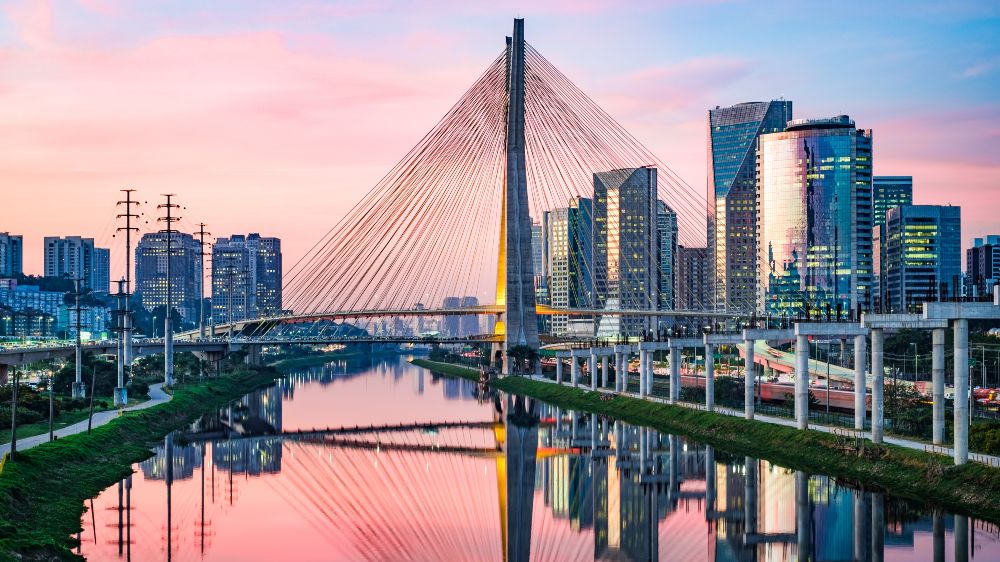EXCLUSIVE: ESG and security in Brazil: challenges and opportunities


Victoria Rees
Share this content
Safeguarding sustainability is the key to strengthening security, says Anderson Fagundes da Silva, CBCP, PFSO, Head of Loss Prevention Transportation at Mercado Livre Brazil.
When it comes to security (both private and public) there is a challenging scenario in Brazil. Public and private security professionals require full preparation and knowledge of scenario mapping, predictive intelligence, geopolitics, business continuity, risk management and security strategy.
It should be noted that Brazil faces problems that affect public security and organizations, such as drug trafficking, where organized crime groups receive drugs from other countries in South America and in addition to selling them illegally in the country, use drugs illegally. This poses a great challenge for the joint action of public security and security from companies to reduce or avoid any impact, particularly when the state has the greatest responsibility to resolve this issue.
In 2022 Brazil was the second most affected country in Latin America regarding cybersecurity, with 103.16 billion attempted cyber-attacks, an increase of 16% compared to 2021 (with 88.5 billion). The country trailed Mexico (with 187 billion) and was followed by Colombia (20 billion) and Peru (15.4 billion). The total for Latin America and the Caribbean was more than 360 billion attempted cyber-attacks in 2022.
In the first 100 days of this year, several public security events in Brazil placed the Ministry of Justice and Public Security at the forefront of the agenda for the federal government. In addition to dealing with situations such as vandalism and invasions at the headquarters of the federal government on 8 January 2023, there were attacks in the state of Rio Grande do Norte and recently Brazil has gone through a series of events involving attacks on schools.
Since 2002, Brazil has registered 23 attacks on schools, ten of them in the last two years. In 2023, the average is one attack per month.
Attacks on schools
This subject has been hotly debated by Brazilian society. Historically, this isn’t an agenda that Brazilian security specialists have faced, but it requires effective responses and we have to react quickly to face this problem.
The Brazilian federal government launched a campaign in April to promote a safe and peaceful environment in schools with the name “We are together for peace in schools”. The idea is also to involve states and cities in an engagement and awareness of this agenda.
After Brazil witnessed attacks on schools and day care centers several strategies were developed including Operation “Safe School”, with preventive and repressive police action 24 hours a day. As a result of this, more than 225 people were arrested or detained and hundreds of social media accounts were taken down.
In the private segment, schools are treating the issue very seriously and investing heavily in the implementation of electronic security systems, in the implementation of protocols and training against attacks in the student environment, as well as expanding security monitoring in the school environment.
Sustainable security
The Brazilian Federal Constitution states that “public security, the duty of the state, the right and responsibility of all, is exercised for the preservation of public order and the security of people and property”. Therefore, integration is increasingly necessary in favor of security that protects society and organizations and businesses – insecurity affects the economy!
Faced with the historic security scenario that affects Brazil, seeking the path of sustainable security is certainly a critical success factor. The phrase “Environmental, Social and Governance” (ESG) refers to a necessary response by companies to the challenges of contemporary society.
In the case of security, it is one of the paths to economic and social order, but also an important tool to ensure that business is perennial, sustainable and that organization continuity can provide the necessary protection for people, assets and in the relationship between the security of companies/businesses and the environment in which they operate.
What is ESG?
ESG considerations include those related to mitigating and adapting to the impacts of climate change, environmental management practices, working conditions and safety and security, respect for human rights, anti-bribery, corruption and compliance with relevant laws and regulations. Therefore, a safe environment will be fully aligned with the protection and management of risks that may impact ESG governance.
So, what are the benefits of having an ESG proposal aligned with security governance and risk management?
A clear view of security risks that may affect ESG governance, through a safer environment, can lead to more sustainability, where people can have a high sense of security and know that their assets are protected in proportion to their value. For future investments, companies can better allocate their resources, combat rising operating expenses, improve employee retention and remain compliant with regulations.
These factors combined can help to create greater efficiencies and long-term cost savings, while providing a stronger foundation of security and resilience in the face of future uncertainty.
Sustainability is also achieved by recognizing opportunities, as forward-thinking companies often gain the upper hand in a competitive market when it comes to ESG risks.
Brazil stands out among the countries where the profile of conscious consumption is increasingly emerging. The Brazilian consumer, who considers environmental aspects as one of the main points at the time of purchase, has been growing as a strong and stable segment.
This type of customer is more aware of environmental impacts and favors local products, in addition to demanding more transparency in the logistics chain. For Brazilian security managers, the protection of the production chain and especially the logistics chain is a constant part of the agenda!
Business continuity
Large Brazilian corporations now have business continuity plans as a vital part of their processes, contemplating potential threats and the impacts these can have on business operations, providing a structure for organizational resilience that protects stakeholder interests, reputation, brand and value creation activities.
Resilience is the watchword: Brazil is a resilient country, facing the crises of the recent pandemic, challenges of government management, instability of public security. We have strong people and fearless entrepreneurs who manage to place our economy among the ten largest in the world.
Due to the war between Russia and Ukraine, there was insecurity between countries about the supply of certain items. As Brazil is a major producer of commodities, it has seen an increase in export demand – therefore the protection of our production chains and especially the security and resilience in our supply chain are increasingly valued by companies. Due to this, Brazilian security professionals are faced with daily challenges to support businesses through predictive intelligence of possible impacts on supply chains and present robust plans for security, risk management and business continuity in the appropriate size and proportion for the Brazilian environment.
Protecting Brazil
We still have the challenge and the need to move forwards in the cybersecurity agenda and it has become evident with the recent advance in cyber-crime that cybersecurity has risen to the top of the priority list for Brazilian organizations, especially when considering the risks that an interruption of activities or a leak of data can cause to the communities in which they are inserted.
The National Cybersecurity Strategy (E-Ciber) and the National Security Plan for Critical Brazilian Infrastructures have already been published and ratified by the government, but we need to move forward with a Regulatory Framework for Cybersecurity and Digital Sovereignty.
The Brazilian challenge regarding security is to invest further in public and private security to ensure the prevention, intelligence and investigation of crime that affects society and businesses. Parallel to this is to safeguard the governance of ESG, to continue investing in social areas – education, health, sanitation, housing, work – to collaborate in the fight against crime and guarantee holistic and sustainable security that can co-operate in the development of businesses, protecting people and assets and providing a social and insurance business.
About the author

Anderson Fagundes da Silva, CBCP, PFSO is currently Head of Loss Prevention Transportation at Mercado Livre Brazil. He has more than 25 years of experience in the security field. He was a Military Police Officer of the Brazilian Army and passed through large organizations in the areas of ports, airports, logistics, industry and tobacco.
Anderson has participated as a speaker at several international seminars and conferences focused on maritime security, logistics security, risk management and compliance all over the globe. He is a member of ASIS, OSAC and the OECD Global Anti-Corruption and Integrity Forum.
This article was originally published in the May edition of Security Journal Americas. To read your FREE digital edition, click here.


